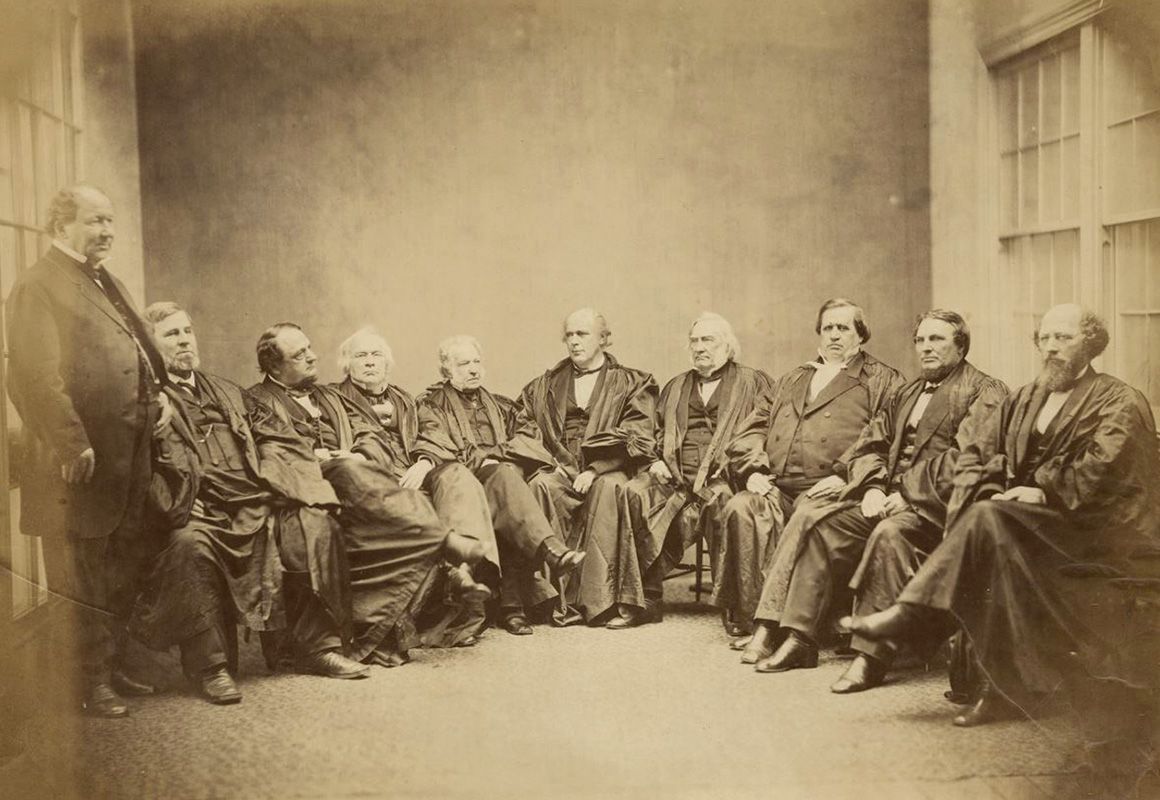The Case for Expanding the Court Before November

For years, a diverse group of liberals and left-of-center commentators have called on Congress to expand the size of the Supreme Court. This argument moved from the background to the forefront after a Republican Senate stonewalled Obama’s final nomination entirely, allowing his Republican successor to fill the vacant seat instead. Since liberal justice Ruth Bader Ginsburg died and had her seat filled by yet another conservative, these calls have intensified, ratcheting up with each major ruling by the new Court.
But a Senate which cannot agree to do away with the filibuster is certainly not going to agree to take the more radical step of expanding the Court. And even if they did, a Republican unified government may arrive three to six years in the future; every president since Clinton has had at least one congressional session in which their party controlled both chambers. So any gains from a one-time expansion may be reversed eventually. These are the conditions of the current debate, which should not be left out of view.
But if Democrats can find the political will to expand the Court, they should do it. Indeed, they should do it before November. Should Republicans take the Senate, as they are very likely to do, then it is very unlikely Biden will be able to make any judicial appointments whatsoever. Meanwhile, if Democrats do expand the Court now, Republicans could only respond in kind in 2025 at the absolute earliest, something that could be prevented just by Biden winning reelection. In the meantime, a liberal Court could strike down the bevy of laws red states have passed putting election integrity in jeopardy, targeting trans people and their families, and imposing criminal penalties on women seeking abortions. These are laws that are hurting people right now, and are about to get much worse; this is a case of, as Martin Luther King Jr. put it, “the fierce urgency of now.”
The problems with the Supreme Court are structural, and there are better long-term reforms available than one-time expansions. But if it is unlikely that Democrats will expand the Court, it is impossible that Republicans would ever consider reforming it when any change would be less favorable politically than the status quo. In the best case, expanding the Court and taking away that advantage could bring Republicans to the bargaining table for some more permanent arrangement.
But even if that does not happen, a norm of expanding the Court when unified government is achieved would be more democratic and less unpredictable than the status quo, in which the contingent timing of a single unexpected death on the Court can have tremendous consequences for the long-term character of the law. While the Trump appointments were made by a president who lost the popular vote and a Senate majority representing a minority of the country, any Court expansion would require the House as well. There is no combination of the presidency, the Senate, and the House that represents less than a majority of voters. Critics of expansion claim that it would diminish the legitimacy of the Court, but surely everyone is aware of the party politics behind nominations under current arrangements. It beggars belief that having to pass the extremely high electoral hurdle of achieving a unified government would reduce legitimacy, rather than enhancing democratic legitimacy.
Finally, critics of expansion fear what it would do to the independence of the Court. But I am far more fearful of what will become of our system if the powers of the legislature continue to atrophy. Right now, Congress churns out a great deal of legislation, but much of it is symbolic in nature. Most of the action of government is performed by administrators, who occasionally find themselves checked by courts, with the yet more occasional intervention of presidents where they have unilateral power of action. This is hardly an ideal arrangement. In order for legislation to have teeth, Congress as an institution must become more assertive. The judiciary is already very independent, among the most independent in the world. Our Congress, meanwhile, is mostly a veto point, not a source of action.
Today, it is not just that five sitting justices can constrain Congress and state legislatures by striking down laws they have passed. It is also that members of Congress cannot be sure what laws are worth passing in the first place, because the future choices of the sitting justices cannot be predicted. After all, the newest justices in the Dobbs majority deceived members of the Senate in order to get themselves in a position to overturn Roe and Casey. Any promise they might make about what sort of rulings they will issue in the future or what sorts of laws they might strike down simply lacks credibility.
It is therefore imperative that Congress assert itself by exercising its constitutional authority over the courts. For its own place in our system, for the security of our free and fair system of elections, and for many other reasons, the Democratic unified government ought to end the conservative majority on the Supreme Court by expanding that body—as soon as possible and no later than October.
Featured Image is The Chase Court




